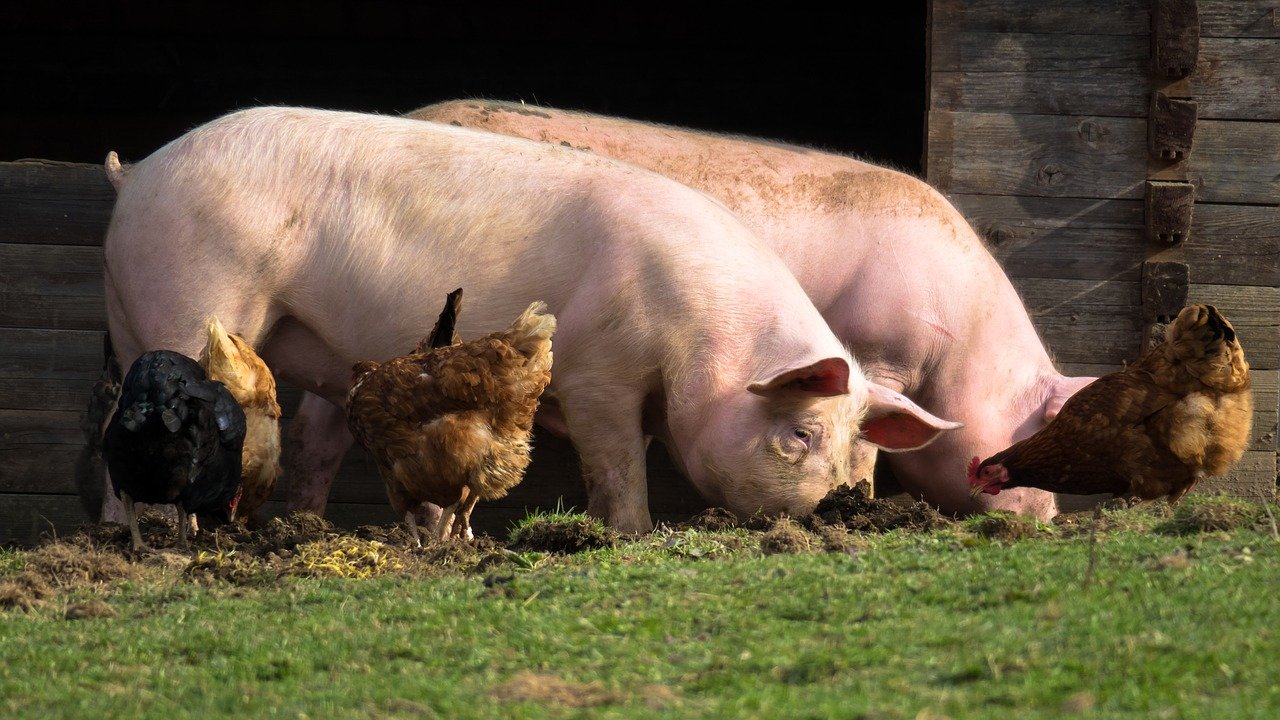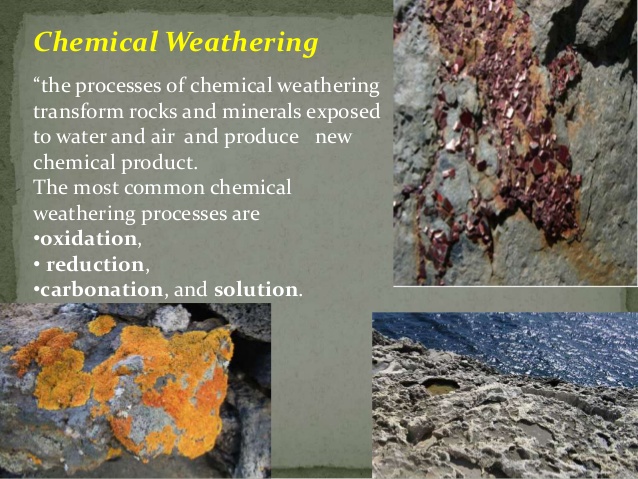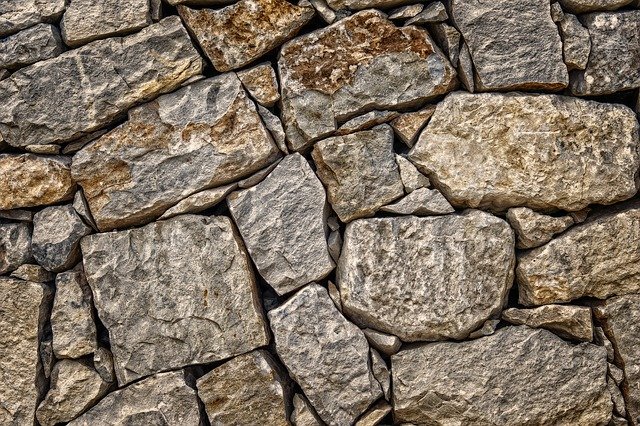How do you define Chemical Weathering?
The chemical weathering of rock can be summarized as the chemical decomposition of rocks.
Chemical weathering of rocks is the disintegration of rocks caused by chemical reactions, and not by mechanical processes.
Chemical weathering of rocks is also the process of the breakdown of rock fragments into pieces with a resultant change in the chemical composition of the rock.
Types of Chemical Weathering
There are about 6 main types or causes of chemical weathering.
The important aspect of chemical weathering is the original rock is altered, leading to the formation of new minerals, the process includes the following.
- Oxidation
- Carbonation
- Hydrolysis
- Hydration
- Chelation
- Base exchange
Oxidation
Oxidation is one of the types of chemical weathering of rocks, and it is a process by which an element loses electrons leading to an increase in positive valency for the element.
Minerals and rocks containing iron and or manganese are particularly subject to oxidation-reduction reactions.
It is important to note also that the reacting substance chemistry is altered by oxidation and in the process losing electrons or gaining electrons, that’s what oxidation does to rocks when it is weathered.
In the process, minerals undergoing reaction are put under physical stress by the change in volume due to the electron transfer stress, for example, Fe 3+ = Fe2+
Carbonation
Carbonation is another process of chemical weathering. The rocks that are weathered by carbonation are called carbonate rocks, this means the rocks contain (Co3).
For example, calcium carbonate which is quite suitable can dissolve to release calcium ions from the rock with a further release of hydrogen carbonate; that’s how carbonation affects the chemical weathering of rocks.
Hydrolysis
Hydrolysis is the most important chemical weathering reaction of silicate minerals, that is, it aids in the decomposition and reaction of rocks with water.
Water ionizes slightly reacting with some easily weathered silicate minerals, that’s how hydrolysis is involved in the chemical weathering of rocks.
Hydration
Hydration involves the addition of water molecules to minerals. How hydration aid in weathering of rocks is that the addition of water molecules causes the minerals to expand.
The mineral is said to have possessed water of hydration, this process might be superficial (the after can be driven off by the process of heating)
Haematite can also undergo hydration where it changes to deotite.
Therefore, the process of chemical weathering of rocks that is involved when water reacts is called hydration.
Base exchange
Bases include calcium, magnesium, sodium, and potassium. These are regarded as divalent and monovalent.
The exchange occurs between an aqueous solution rich in one of the elements for another rich in one cation and or mineral-rich in another.
The process is considered to occur on rocks fragment or solutions containing different rocks which are fractions of the rocks.
Chelation
Chelation is a complex organic process of chemical weathering of rocks by which metallic cations are either incorporated into hydrocarbon molecules or ring compounds which are either aromatic or aliphatic structures.
Substances like humic and fluvic acids which are organic substances are the main chelating agent. These organic acids (humic and fluvic) can form a chelate with magnesium cation, hydrogen ion, calcium ion, strontium cation, zinc ion, etc.









